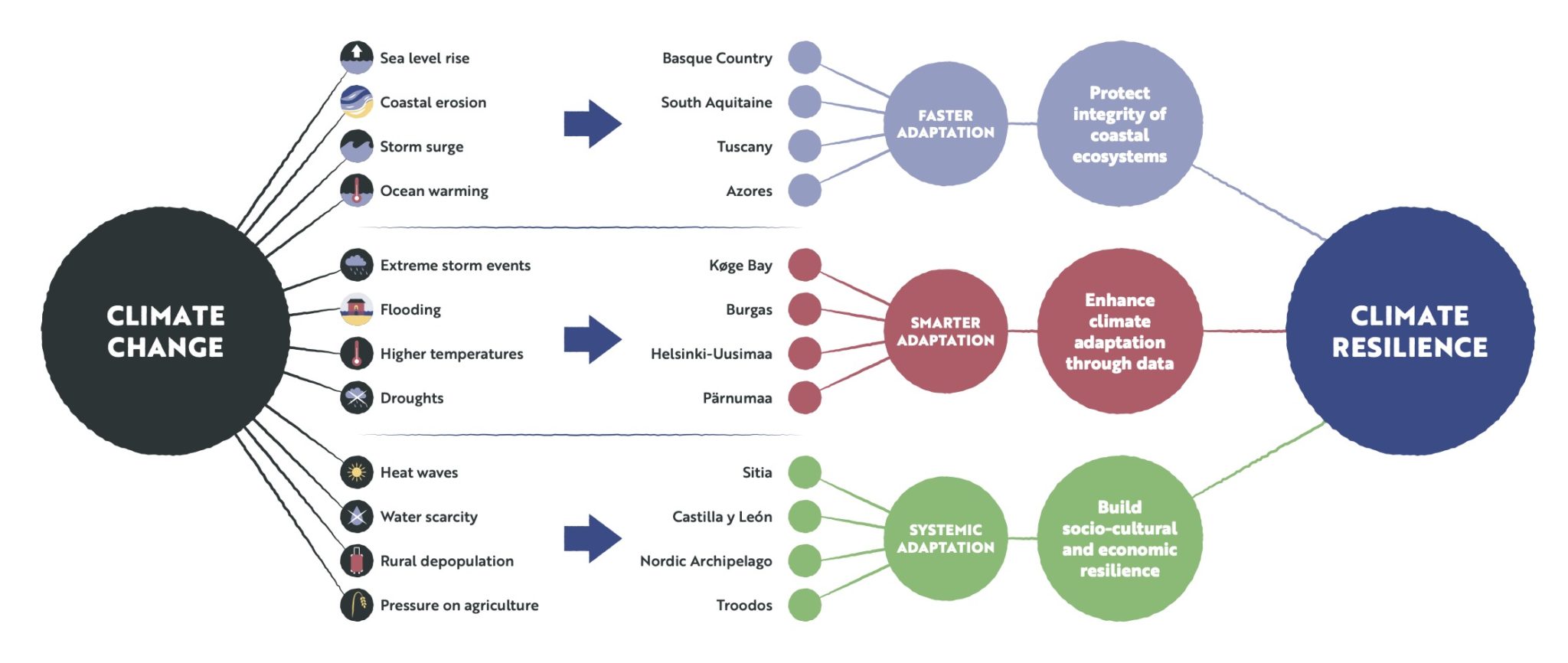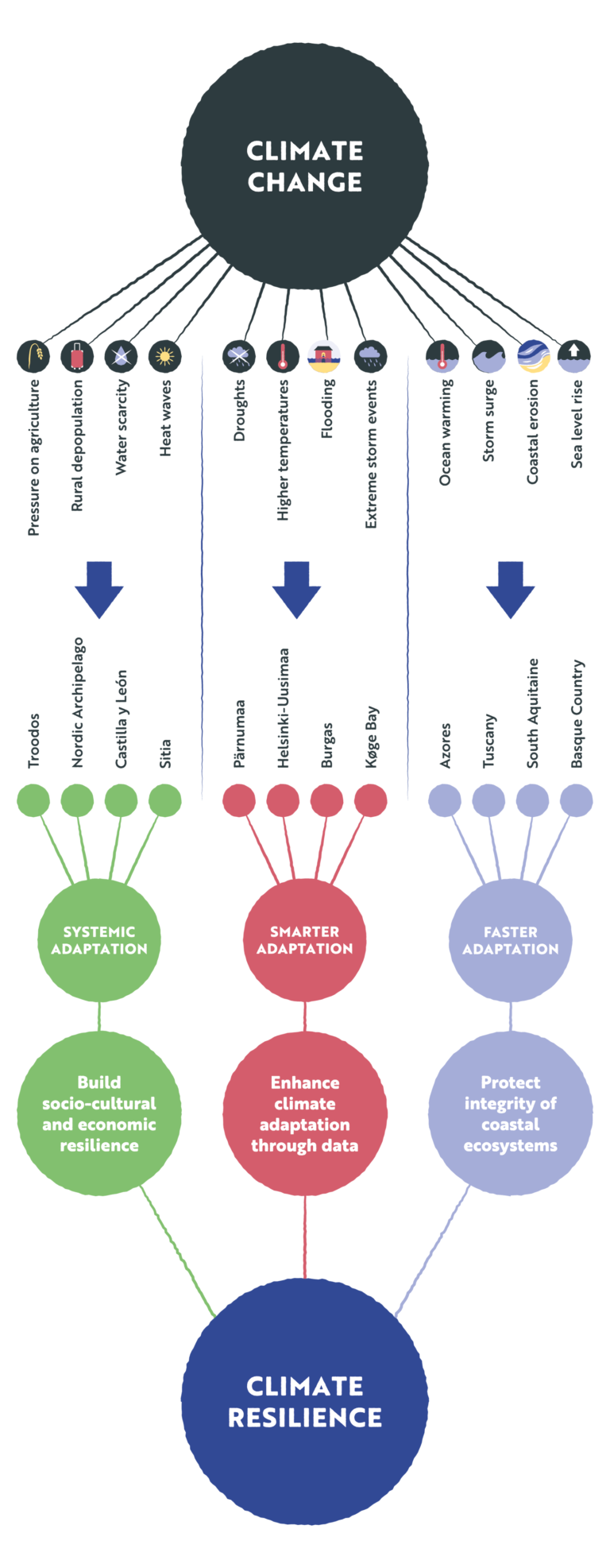REGIONs4CLIMATE / ABOUT
About
How does climate change affect us every day?
The effects of climate change are becoming more visible in our daily lives. As global warming continues to worsen, we need to reorganise our habits and lifestyles.
The IPCC identifies the loss of food production and water scarcity as the main resources impacted by climate change, impacting our economy, health and society.
Water scarcity
Due to climate change, many regions are faced with severe episodes of water scarcity. On average, this amounts to one month per year.
Some regions, such as Cyprus and the Nordic Archipelago, suffer even more during the tourist season because of the massive change in population between low and high periods. This water scarcity has an impact on local agriculture and tourism activities, causing the population to leave because of the lack of work and resources available, such as in Castilla y Léon and Sitia.
Water-related hazards
Droughts, floods, and coastal erosion are the main hazards faced in the demo regions of the project. This forces communities in the South Aquitaine, Azores, Tuscany, Burgas, Pärnumaa and Helsinki-Uusimaa regions to leave their homes.
The overarching ambition of Regions4Climate is to advance European transitions to climate resilience. The project will provide a suite of user-centred tools and frameworks to support socially-just regional climate resilience transitions, while linking new knowledge and detailed understanding of regional ecosystems with innovative technologies and processes.
Learnings from regional demonstrations of co-created cross-sectoral solutions within 12 European regions provide input for long-term politically adopted and secured resilience strategies.
Floods in the Azores.
Source: DRAAC (Direção Regional do Ambiente e Alterações Climáticas)


